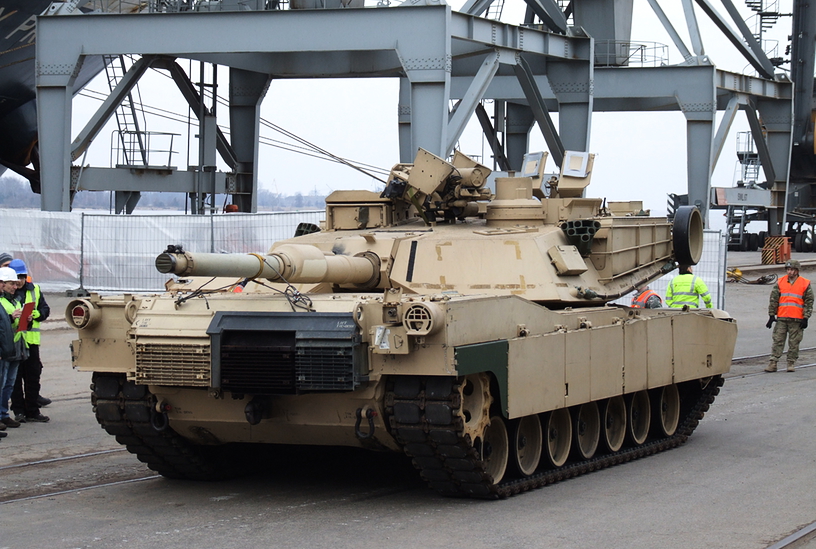The ministry also warned that by deploying heavy weaponry in Eastern Europe and the Baltic states the US would undermine the key provision of the Russia-NATO Founding Act of 1997.
"This information [media reports about such plans] confirms that the United States, in collaboration with its allies, seeks in earnest to definitively undermine the key provision of the Russia-NATO Founding Act of 1997, in which the alliance pledged not to station substantial combat forces in [Eastern European] countries on a permanent basis," Russia's Foreign Ministry said in a statement on Monday.
About 1,200 pieces of weaponry, including Bradley fighting vehicles, artillery systems and 250 tanks are to be stored in Bulgaria, Latvia, Lithuania, Poland, Romania, Estonia, and possibly Hungary, the Russian Foreign Ministry said citing the Pentagon's plans.
"The United States is fanning passions and carefully cultivating anti-Russian phobias among its European allies in taking advantage of the current quite difficult moment to expand its military presence - and consequently its influence - in Europe," the statement said.
"We hope that, after all, reason will prevail and that it will be possible to stop the situation in Europe from sliding toward a new military confrontation, which may have dangerous consequences," the statement said.
According to the Russian Foreign Ministry's information the US is planning to deploy to Eastern Europe weaponry that "is enough to arm a brigade of 3,000 to 5,000 men. These plans are expected to be approved quickly. The ultimate goal is their official approval during a planned meeting of NATO defense ministers in Brussels late in June," the ministry said.
"Such vanguard deployment of armaments is nothing else than permanent military presence. The fact that the personnel who are going to use them will be formally rotated is of no fundamental significance," it said.
"This raises the risk that the American military strategy at NATO's 'eastern flank' will have 'a life of its own,' having nothing to do with reality or the political interests of the European peoples, and acquire an inertia that will be hard to stop in the future," the statement said.
"One cannot avoid paying attention to arguments that are used in Washington to justify these plans. The planned measures are said to be necessary for 'raising the confidence' of the European allies in the face of the 'Russian threat,'" it said.
"However, both in Washington and in European capitals there is realization that the 'Russian threat' is no more than a myth. This myth is convenient to use propagandistically to cloak the responsibility of the United States for the unconstitutional coup in Ukraine and for the actions of those in Kyiv who are not prepared to end the fratricidal was in Donbas," the statement said.
Citing American and allied officials, the New York Times reported last Saturday that the Pentagon is poised to store battle tanks, infantry fighting vehicles and other heavy weapons for as many as 5,000 American troops in several Baltic and Eastern European countries to deter Russia's aggression.
The countries reportedly included in the plan are Latvia, Lithuania, Estonia, Poland, Romania, Bulgaria and probably also Hungary, according to the US paper.
The Pentagon's proposal still requires approval by US Defense Secretary Ashton B. Carter and the White House. If it is approved, it would represent the first time since the end of the Cold War that the United States has stationed heavy military equipment in the newer NATO member nations in Eastern Europe that had once been part of the Soviet sphere of influence.































